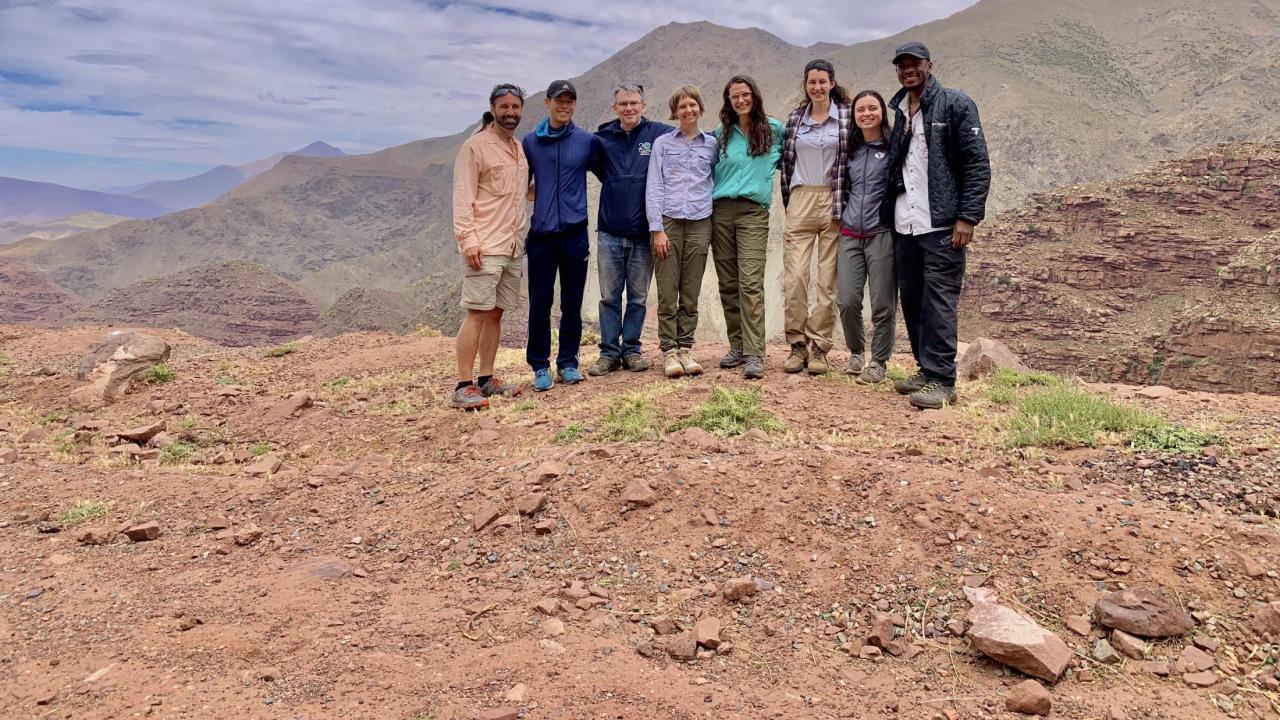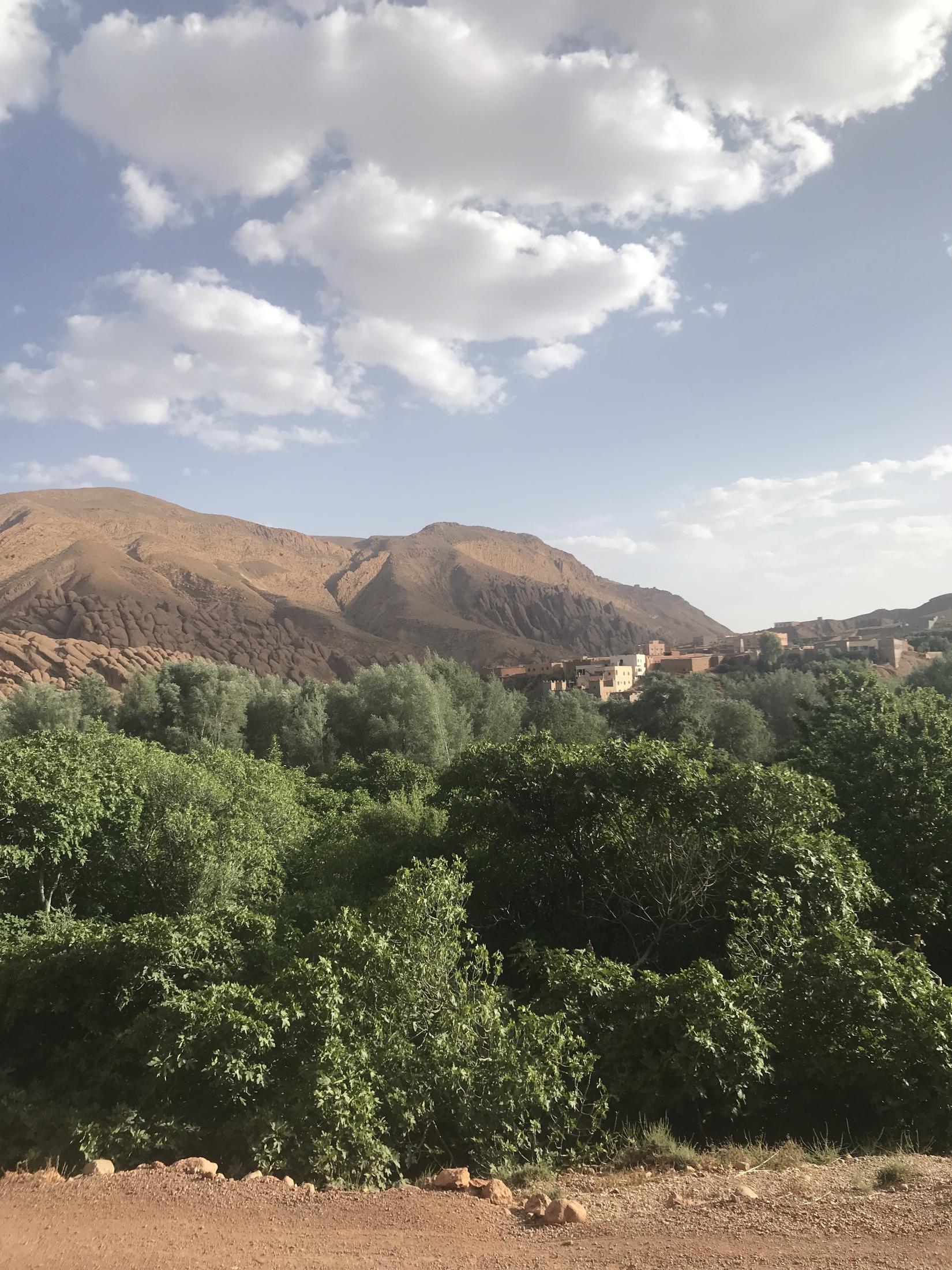
Hannah Chaney: Monitoring Stream Conditions in Morocco through DReAM Program
Over the summer, I had the opportunity to aid with dryland ephemeral stream monitoring in Morocco as a part of the DReAM program. This three-year research and educational program is designed to collect hydrologic data concerning water levels in several large Moroccan aquifers. The two professors managing the trip have extensive professional networks throughout Morocco and plan to bring three cohorts of qualified undergraduate and graduate students to assist with field work, project management, and data analysis with the project in Morocco. I was part of the first cohort with this program. During the 5-week travel portion of the program, I had the opportunity to meet with diverse stakeholders across the Moroccan water sector, including students and professors at prominent Moroccan universities as well as staff in the ministry of water and basin-management and agricultural-development agencies. Field work was also a large part of this experience. Our group had a virtual culture and field-work training session the week before departing for Morocco, where we were briefed on the fieldwork we would be performing and how work standards differed culturally. The fieldwork consisted of deploying and collecting temperature sensors in riverbeds, measuring water levels and flow rates, collecting water samples, and aiding with well and pipe maintenance in a remote village. Field work took place in a variety of places such as Marrakesh, Oukaimeden at the summit of the Atlas Mountains (pictures 1 and 2), Taroudant, and the Dades valley (picture 3) near the Sahara Desert.

DReAM Group participating in sensor installation fieldwork, Oukaimeden, Morocco.
I really enjoyed gaining hydrologic field experience in such a variety of locations and conditions. I had previous experience deploying similar hydrologic sensors in California, but doing so in Morocco, we had to take different considerations for the experiment to be successful. For example, our team took a considerable amount of time hiding sensors and tracking down previously hidden sensors. Sensors were well hidden so that they would not be stolen or vandalized after researchers departed. It was also neat to experience communal farming systems like the ones we saw and studied in the Dades valley (bottom picture). This mountain community was built along a spring-fed river and it was historically difficult to maintain boundaries between farmer properties in the floodplain. This resulted in cropping systems that were community-owned, meaning that any member of the community could plant and harvest from the plots. I have never witnessed, let alone studied, water-resource management within an agricultural system like this and it really was such a unique and beautiful learning experience.

View of the agricultural river basin in Danes Valley, Morocco.
Overall, I am very grateful for the role I got to play in the DReAM program as well as the direction it has helped point my career. I have wanted to work with water resources in the Middle East/North Africa region since undergraduate school and it was incredible to have an opportunity that fit this dream so perfectly. Participation in this program would not have been possible if it were not for the IAD’s program’s intentional curriculum and flexible structure. The IAD program’s curriculum gave me the platform to have a multidisciplinary perspective on aspects that impact water uses in Morocco, including irrigation regimes, crop trends and rotations, economics of small and large farms, and the impact of water regulation laws on farmers at different scales. I felt like I brought a valuable multidisciplinary perspective to my group and in return, learned a lot about the water modelling in developing countries and how geology influences this. Anyone with an interest in the Middle East/North Africa region and/or water resources modelling in dryland agricultural basin should consider applying to this paid program. It’s not often that you get to participate in a paid program that also lets you leisurely explore Morocco during off time!